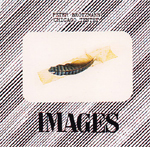|
|
 |
Dusted Reviews
Artist: Peter Brötzmann Chicago Tentet Album: Signs / Images Label: Okkadisk Review date: Sep. 15, 2004 |

|
|
|
 |
Peter Brötzmann first showed his flair for making the most of medium-sized ensembles full of outsized talent 36 years ago on his second album “Machine Gun,” but it took him another three decades to find a little big band that he could keep together over the long haul. One secret to the Chicago Tentet’s longevity is Brötzmann’s elder statesman status; while no one in the group could be called a youngster (trumpeter Joe McPhee, like Brötzmann, is in his 60s, and the rest are in their 40s), many of them came of age looking up to him. How else to explain how this band of bandleaders, with years of tangled alliances and a couple antagonisms between them, check their egos at the door to make this band work? It helps that Brötzmann is an exceptionally generous leader, quite willing to share his place in the sun with the troops. Of the five massive pieces that sprawl across these two companion CDs, three came from the band. The rest of the band has plenty to say about where the music goes, sometimes with surprising results. It’s one thing to proclaim that you know what Brötzmann sounds like; his instrumental voice, especially in full cry, is unmistakable. But there’s plenty of diversity in his discography and the Tentet, due in large part to the other writers and the many vivid personalities within the group, doesn’t really sound like any other Brötzmann band.
The 37-minute “All Things Being Equal” by Ken Vandermark takes up over half of the Images disc. It is segmented and indexed, a sop for those who hesitate to commit so much time to a single performance. But it rewards persistent attention by contrasting tightly organized full-ensemble episodes like the opening segment, with its spirited McPhee trumpet solo, with arranged showcases for single soloists and some collectively improvised reed-tangle. The leader’s title track, which runs 24:11, revisits Brötzmann’s long-standing interest in using a group’s disparate instrumental personalities to secure a myriad of improvisational possibilities, by setting up microcosmic conversations that lead into group crescendos. While the piece has plenty of forceful playing, it’s quite thoughtfully deployed; Images is a compelling rejoinder to anyone who is so woefully behind the curve that they harbor the notion that Brötzmann is just an energy guy.
Mats Gustafsson kicks off Signs with “Bird Notes,” a tribute to deceased fellow Swedish saxophonist Bengt Nordström. Outside Sweden, Nordström is mainly a footnote in the Albert Ayler story; he got the man one of his earliest recording breaks. First cellist Fred Lonberg-Holm bows him a bittersweet elegiac melody, then a surge of horns dissolve the sorrow in a ferocious acid bath. “Bird Notes” has some of the most bracing organized chaos of either CD, but also their most quietly gorgeous moment when, nine minutes in, Brötzmann brings it down to sing his own lament. Lonberg-Holm’s own “Six Gun Territory” is a game piece that rushes through many moods, from Ives-ian three ring circus to a swirl of molten horn cries in a comparatively truncated 14 minutes. The leader’s Signs goes through some changes of its own. Massive orchestral textures give way to an extended charge in which the horn players give up goods, peeling off sequences of steaming solos over surging rhythms before Lonberg-Holm ends it with a creaking, mostly silent finale. If that represents the signpost of old age that Brötzmann envisages at the end of his road, believe me, he’s not there yet.
By Bill Meyer
|







